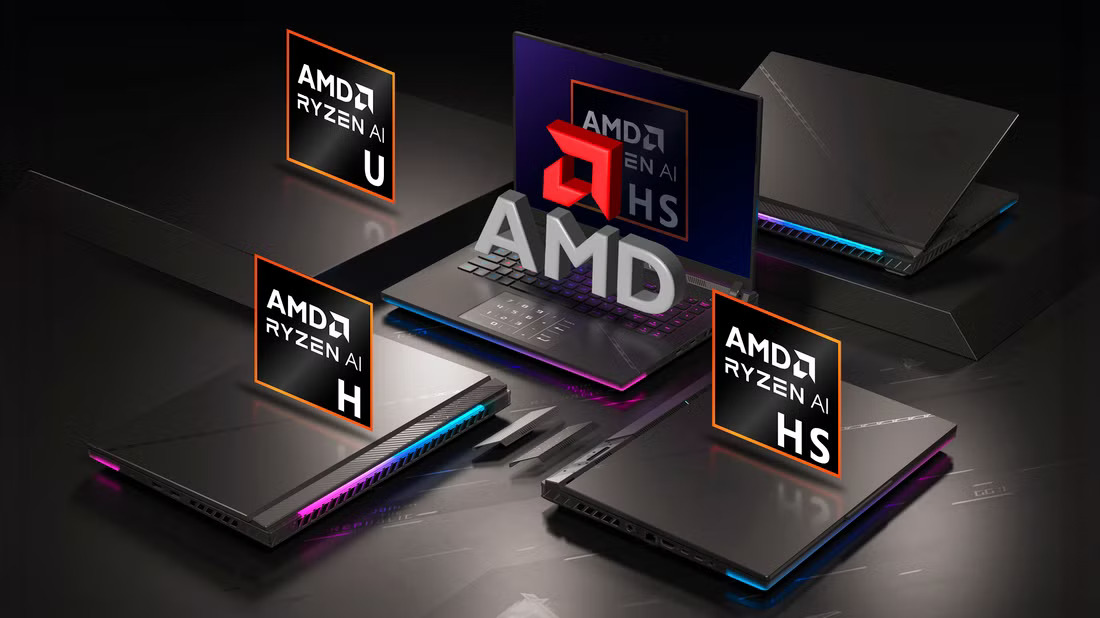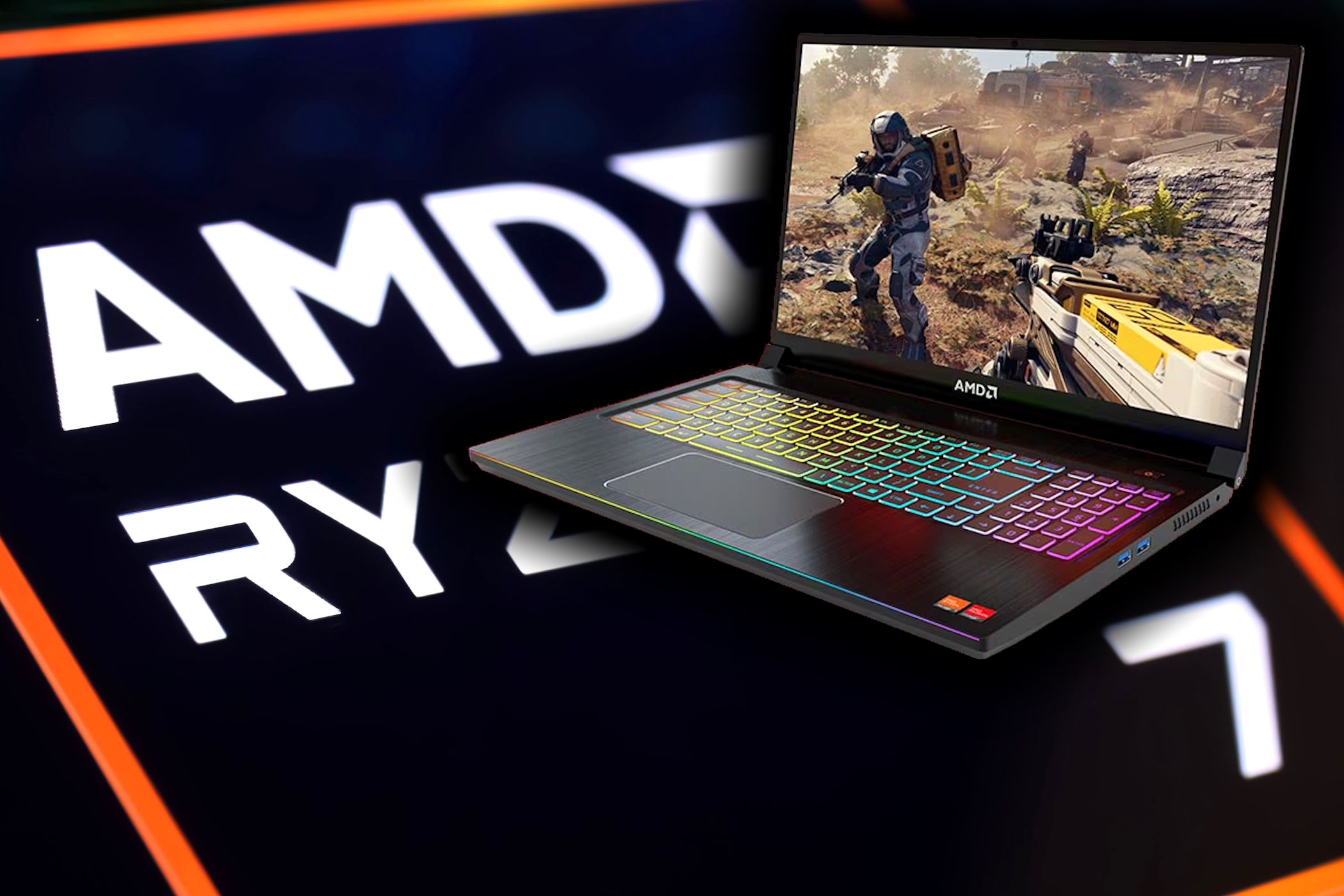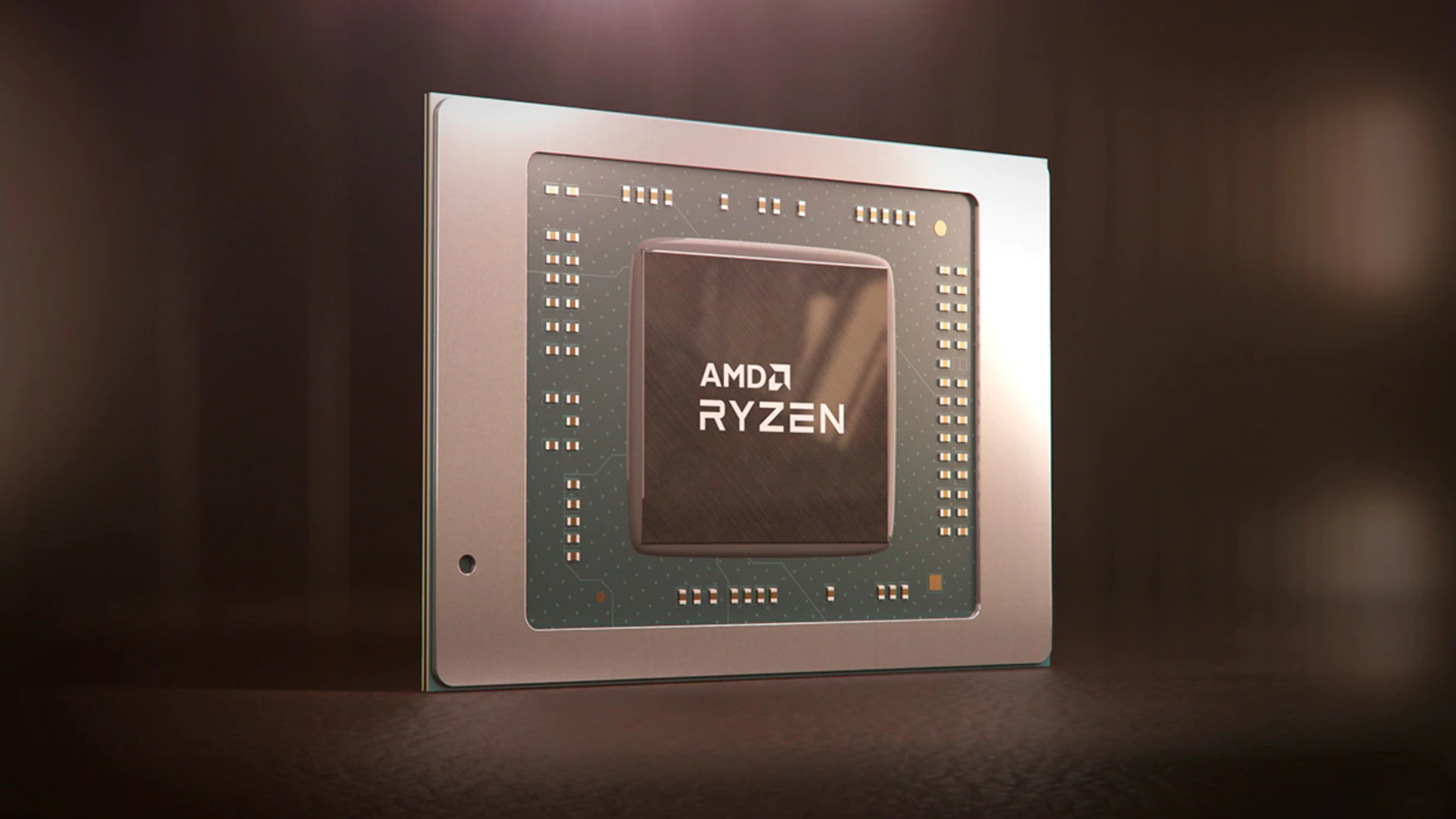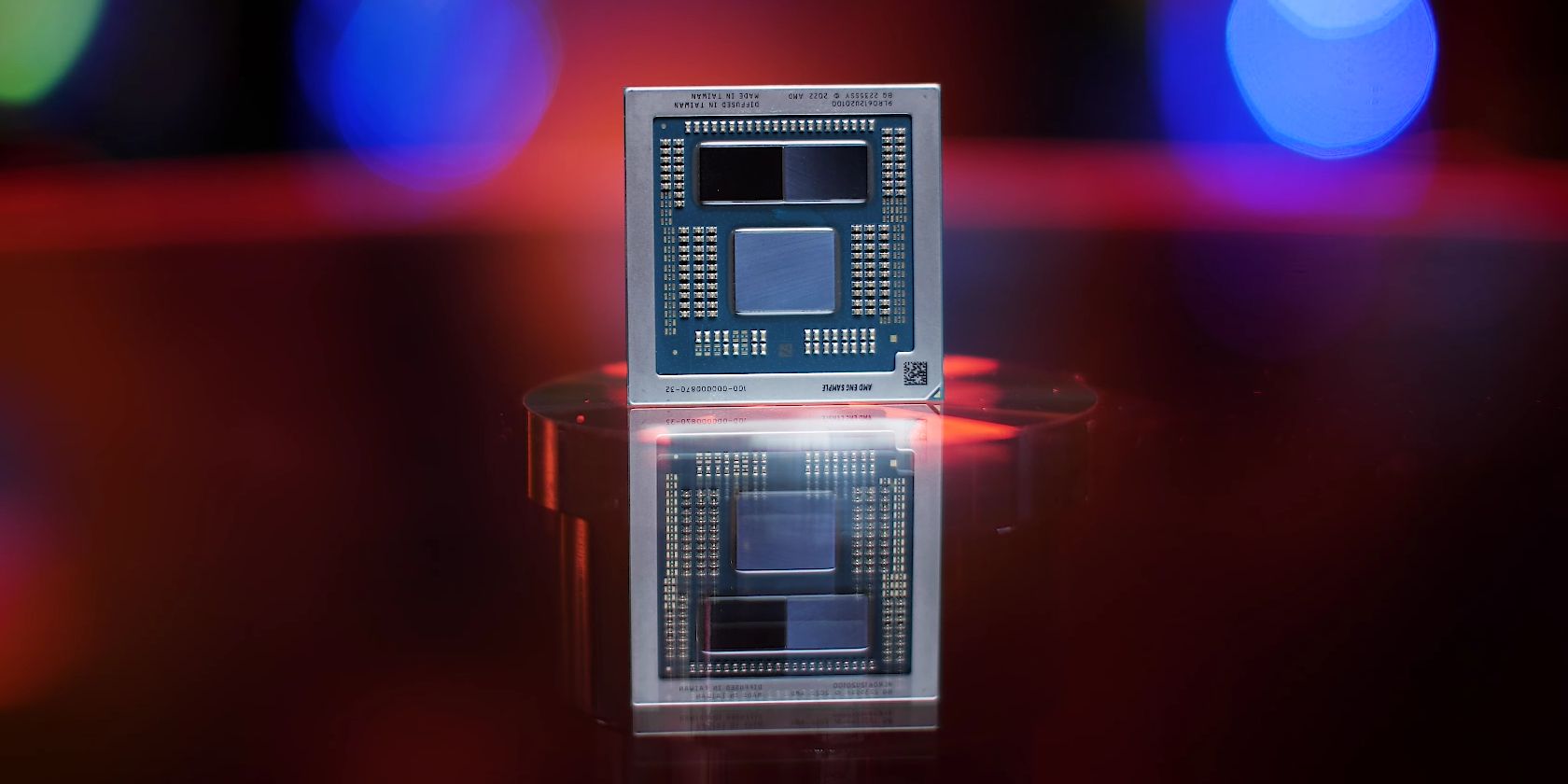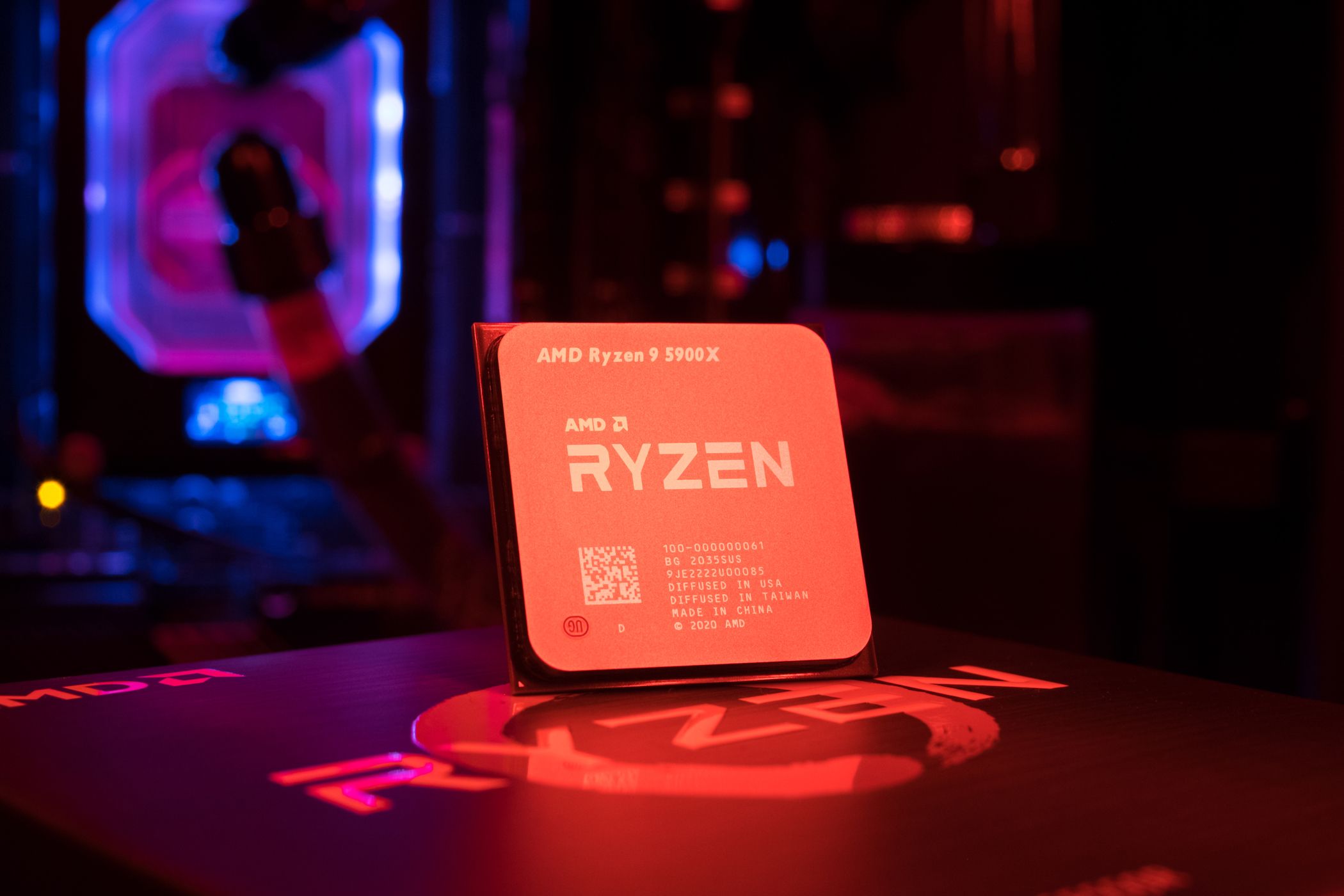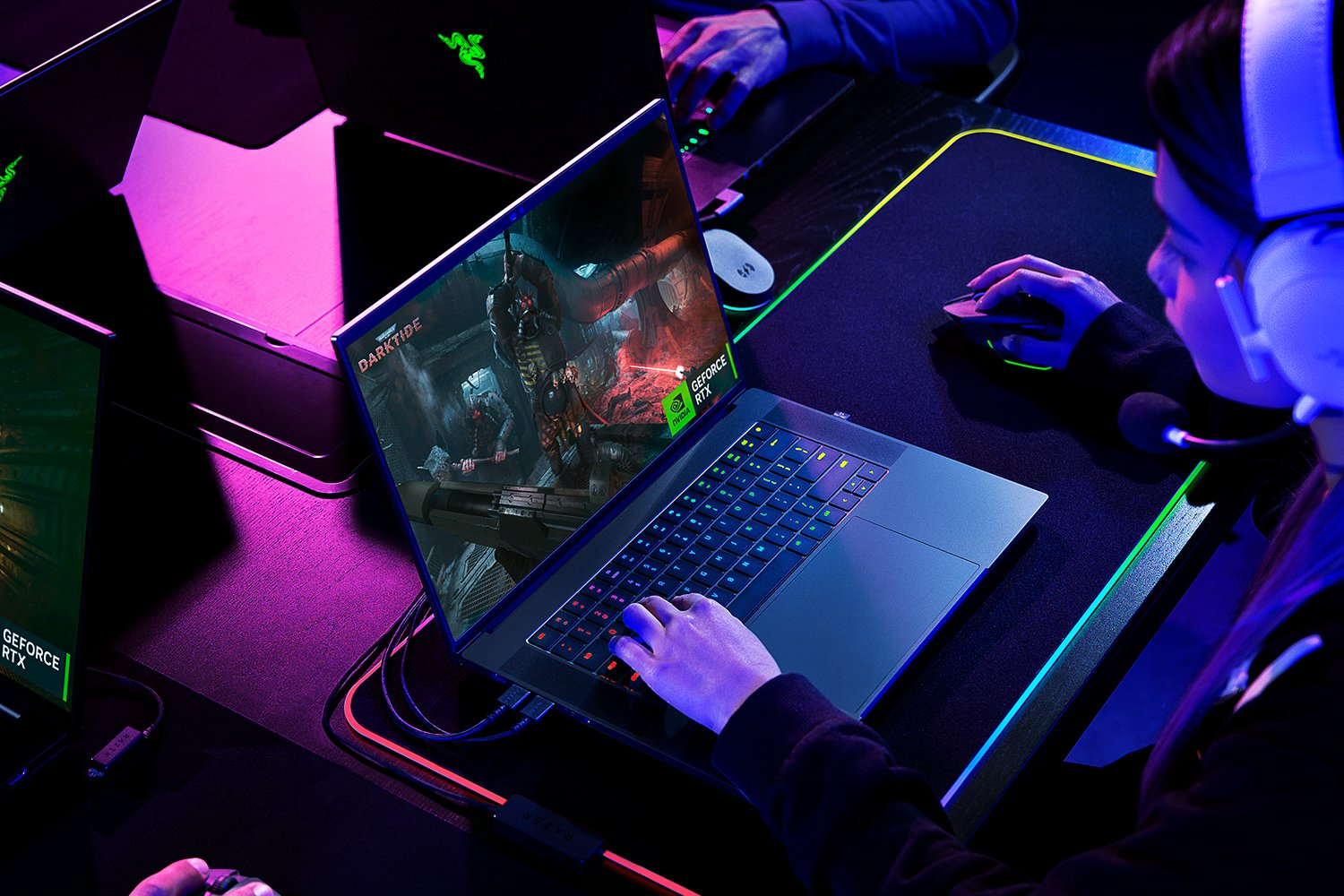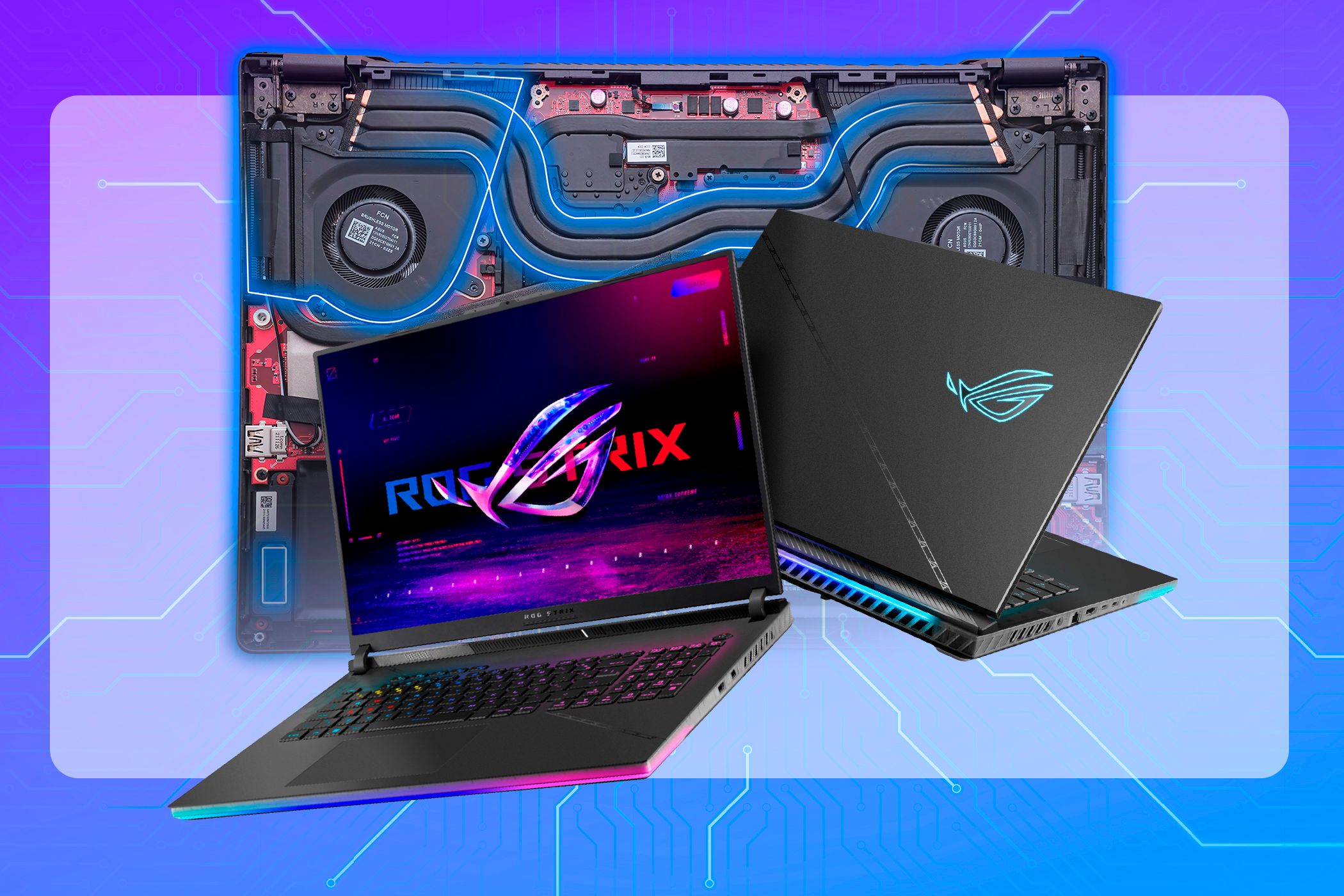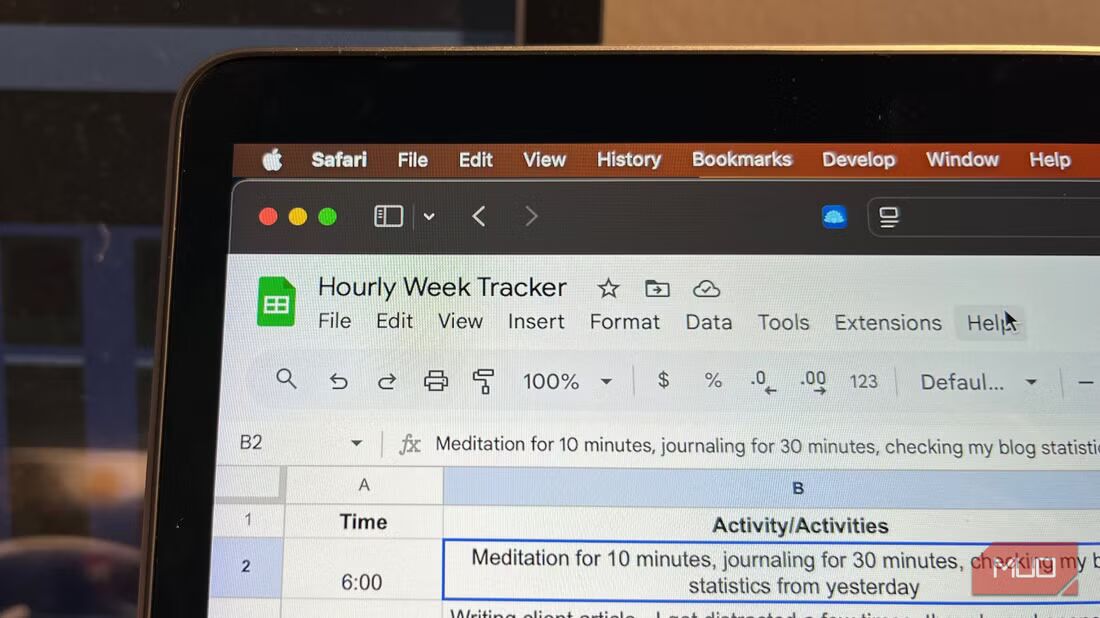Key Takeaways
- AMD Ryzen U processors provide power efficiency for better battery life and less heat production, suitable for thin-and-light laptops.
- AMD Ryzen HS processors balance power and efficiency with a higher TDP than U chips, offering decent battery life and performance.
- AMD Ryzen H and HX processors prioritize performance over battery life, requiring more power and ideal for gaming laptops with robust cooling systems.
If you’re shopping for a new laptop, the processor is one of the first considerations. Unfortunately, laptop CPU naming schemes are confusing, combining indecipherable letters and numbers that don’t make sense for most people.
Thankfully, with a few tips and tricks, you can understand AMD’s laptop naming scheme and find the right CPU for your new machine.
Understanding AMD’s Naming Scheme
PC hardware naming schemes are confusing, with numbers and letters making it difficult to understand what you’re buying in terms of power and performance; AMD laptop chips are notoriously ambiguous.
With AMD Ryzen processors, the digits after the Ryzen name denote performance level—e.g., Ryzen 3 is a budget option, while Ryzen 9 is often the most powerful chip in a particular generation. However, the letters appended to the model numbers add another layer to AMD’s processor naming schemes, and these letters indicate a laptop processor’s performance levels based on its power consumption and a few more specific features.
AMD Ryzen U: A Power-Efficient Laptop Chip
The AMD Ryzen U is often the most affordable chip variant of the bunch and has the lowest power consumption. But that doesn’t mean that you should ignore it, as U, meaning ultra-low power, offers the best battery life and produces the least heat. That’s why you’ll often find U processors deployed in thin-and-light applications, allowing laptop manufacturers to put in a smaller battery and less cooling solutions without compromising battery life.
Since U processors are thriftier on power consumption compared to their siblings, you can stay unplugged and do more for longer. Also, note that even Ryzen 7 processors have U variants, meaning gamers and other users who need computing power but don’t want to lug around a heavy laptop could pick something like the AMD Ryzen 7 8840U.
Even a few Windows handheld consoles like the OneXPlayer 2 Pro—one of the top handheld gaming consoles worth buying in 2024—use this processor to allow for a longer on-battery gaming experience without compromising on performance.
AMD Ryzen HS: Balancing Power and Efficiency
AMD’s Ryzen HS processors emphasize performance more than their Ryzen U counterparts. However, they still consider battery life. For example, we can compare the AMD Ryzen 5 8640U to the Ryzen 5 8640HS. Both models are practically the same processor, with the same clock speeds (3.5GHz base clock, 4.9GHz boost clock), threads and core counts (12 threads/6 cores), L3 cache memory size (16MB), and integrated GPU (Radeon 760M).
However, the HS model has a higher base TDP at 20W versus the U’s 15W. This allows PC manufacturers to get more performance from HS chips while still delivering a decent battery life. You can say that the HS processor is AMD’s mainstream offering, allowing it to do pretty much anything at the price of a slightly lower power efficiency versus a U chip.
AMD Ryzen H: For When You Need More Performance
If you want performance over battery life and power efficiency, choose a Ryzen H processor. Processors that sport this badge will require more power, with their TDP going as high as 54 watts. Because of this, don’t expect to find Ryzen H chips in thin-and-light laptops. Instead, you’re more likely to find them in chunkier gaming laptops with two or more fans to deliver the cooling requirements of this processor.
This means you can get better performance from your laptop, which could hit higher clock speeds due to the improved cooling and increased power delivery. However, this means that your laptop will have significantly less battery life, meaning you’ll need to stay plugged in most of the time, especially if you’re pushing its performance. This likely isn’t a major issue, though, as the discrete GPU on your gaming laptop likely consumes more power than the AMD Ryzen H processor it packs inside.
AMD Ryzen HX: All-Out Power
While AMD Ryzen H already delivers a lot of performance, it lacks one thing that you can only get on HX processors: overclocking. This allows laptop manufacturers to push the system’s performance, allowing you to get higher clock speeds versus comparable processors.
Of course, higher clock speeds mean higher power consumption and more heat, so the laptop will need a large chassis to accommodate the bigger battery. It will also have a beefier cooling system to prevent thermal throttling.
We can compare the AMD Ryzen 9 6980HX and 6980HS to see the difference. Both processors have eight cores and 16 threads, but the HX processor will have a higher boost clock of 5.0 GHz (versus 4.9 GHz on the HS chip). It also has a higher TDP of 45 watts, 10 watts more than the HS chip demands.
AMD Ryzen HX3D: Designed for Laptop Gaming
If you’re an AMD fan, you’d likely have heard of its legendary X3D processors with 3D V-Cache. This feature gives it three times greater L3 cache than the other non-X3D AMD processors, which supercharges gaming. So, if you’re a hardcore gamer and simultaneously want to bring your gaming laptop with you, look for one that sports the HX3D mark.
Note that at the moment, there’s only one HX3D processor: the AMD Ryzen 9 7945HX3D. Because of its thermal and power requirements, expect laptops featuring this chip to be big and bulky. For example, I’ve only seen two laptop models that feature this processor: a 16- or 17-inch. This means they’re large, bulky machines that you wouldn’t want to lug around all the time.
Which AMD Laptop Processor Should You Buy?
Now that you know the differences between these laptop classes, you can decide on the right laptop processor based on your needs. Once you have considered your budget, you can look at different laptops based on the processor level first. For example, if you’re on a budget, you’d likely want to stick with a Ryzen 3 or Ryzen 5 chip but pick a Ryzen 7 or Ryzen 9 CPU if you need more performance and are willing to spend more.
Once you know which Ryzen variant you want, you can look at these letters. If you work outside, away from an outlet, you’d probably want to stick with a Ryzen U chip, but if performance matters to you more than battery life, a Ryzen HX processor is a better option.
Note that laptop manufacturers also vary the power that these processors get, so if you want to ensure that you’re getting the performance you expect, it’s always better to watch reviews of the laptop you’re looking at. That way, you can verify that it will perform as expected before spending your hard-earned money.
